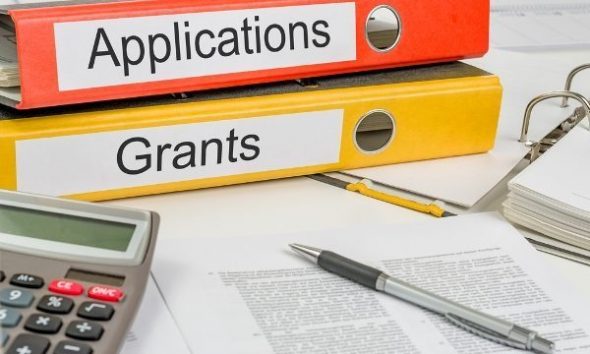Sharing is caring!
Knowledge dissemination represents one of the most powerful tools in science development. National and international conferences, symposiums, different scientific meetings, abroad short courses, are all of the major interest, however; not all of us are “lucky” enough to attend. In fact, luck has nothing to do with the application you are applying to. Many people I met including PhD students complained about critical committee decisions and some blame on having small scientific experience or encountering intense competition or being located in third world countries. While some of these comments are actually true, the way to drill your path to a successful travel grant application depends primarily on how to write an impressive covering or motivation letter. During my studies, I have attended many seminars, scientific meetings, and international conferences with travel grants application success of 98% and so far, I can only remember two applications that have been rejected during the last 5 years. In this article, I will walk you through important steps that I believe most of the scientific board committees look at in your application and I will try to guide you based on how to work smarter rather than harder and eventually filling up your happy account with scientific pennies.
1. ALWAYS BE IN A GOOD TIME

Scheduling your time is crucial if you are planning to attend scientific meetings. You need first to search for all the events in your calendar year. Once you have identified some interesting ones, you need to filter them according to your availability and matching their registration deadlines with the deadlines of your travel grant application sponsors. Many PhD students and researchers get trapped because they found themselves either want to register after the travel grant application deadline has been passed or having money in their accounts while the event registration deadline has been already fired off.
2. KNOWING YOUR RESOURCES

To calculate your chances, you need to know what traveling grant resources you will be heading to. I consider this one of the most important parts of the grant haunting process. Many academics only know few resources to provide travel grants and most of these are granted by their universities or affiliated entities that are in collaboration with their research firms. In my own experience, there are many other travel grant portals that you can actually knock on the door seeking travel grants. Non-profit foundations, research foundations in your field of interest, pharmaceutical companies, and even some conferences themselves have a quote for additional external funds that you can apply for. All these portals can guide you towards better grant wining-chance rather than keeping yourself prisoned to only a few travel grants providers. The more grant resources, the better the chance of accepted application.
3. ACCEPTED ABSTRACT

The first step towards successful grant haunting is to get your abstract accepted. Active participation is a green sign of individual intention to attend the meeting. The chances of a grant application to pass the initial review are high enough if you have accepted the abstract. However, you can also apply if you don’t have but then other criteria of selection will be applied. Many scientific meetings have their abstract review process before registration but the question is how to get your abstract accepted? Well, to do so you have to market your findings in a scientific manner. Try to highlight what’s new in your abstract and be concise and emphasize the need for such results and why they are significant. Abstract of 300 words should be more than enough to summarize your paper. Try to have some feedback on your abstract from a college and have it proofread also especially if you are eager to participate as an oral presenter. Don’t be disappointed if you have displaced from oral presentation because 90% of abstracts not selected for oral presentations will be accepted for the poster sessions, therefore; in all cases, your abstract will be accepted with some spicy efforts on formatting it.
4. YOUR COVERING OR MOTIVATION LETTER
Now coming to your most important part of your travel grant application, the letter which supposed to convince your sponsor why you should be selected as a potential candidate to receive the grant. This letter should explain what your attendance would add to you as an attendee or participant. Avoid being superficial, general, and passive voicing. Always be direct, specific, and elaborate on all the possible benefits you would get if you attend. There are three major points you must address in your letter:
4.1 knowledge dissemination

Increase your knowledge capacity must be your first introduction heading paragraph in your letter. Emphasize the importance of science updating and highlight how following the latest advancements in research and holding discussion would strengthen your knowledge. Explain how sharing your findings would be of interest to the scientific community at the meeting, how you would be able to develop the strong points, close the gaps, and improve your future experimental/scientific approaches. In addition, flavor your paragraph by reflecting how supper excited you are in attending but do not exaggerate very much so it becomes very salty.
4.2 Learning new skills

Your next bullet should definitely be on learning new skills. Creativity and innovation can be extended beyond creating new methods or innovative new ideas. It could also express new ways of approaching the existing methods, major additions to existing ideas and utilizing the most cost-effective resources to have the maximum outcomes and benefits. Learning new skills has never been restricted to the development of your field of expertise only. Augmenting your on-hand skills by the addition of new ones from the scientific meeting should be your prime trigger to convince the grant board committee. If you experienced something that happened to you before that enriched your skills, even though it is not related to science, do tell them briefly about it, and believe me you might never know how strong the impact of your previous direct experience on the decision of your grant application. I can share with you a very simple experience of my own where I found this 100% working out. I have been to a conference in UK where I met a Swedish scientist who gave a very fascinating presentation by sketching on the slides to attract more audience attention and was able to clearly send his messages. This has influenced me positively to improve the way I present my scientific data.
4.3 Networking

One of the major advantages of scientific meetings is the ability to develop scientific networks. Sharing information, getting in touch with research leaders in terms of scientific collaborations and developing research ideas, will have a considerable effect on pushing science forward and making recognized scientific achievements. In your letter, you should address the importance of networking and how this will shape your research and your career if you want to pursue research.
5. POST-CONFERENCE REPORT

Now given that you have successfully granted financial support from your sponsor for the event you are intending to go, it is common that your grant provider will ask for a scientific report. Most PhD students and other researchers unaware of this requirement and submit very basic post-event summaries and therefore it’s not odd that their next applications are rejected. You must show the funder of your scientific trip that most of your covering or motivation letter have been met. You also need to summarize all the scientific meeting findings you have attended and what was the impact of them on your attendance. Bringing high-quality scientific reports back to the board committee will ensure that you have deserved the grant and you will be placed on the top priority candidate list, and whenever you apply again your travel grant wheel will never stop. Finally, you should thank the funders for considering your application and you should appreciate their mission towards enhancing knowledge dissemination and sharing you scientific accomplishments. I hope this article would be of help and assistance and you are of course welcome to share it for general public interest and remember; knowledge dissemination is a key.

wjPe2VnRJlo
051pHHXJDs2
CDy9QIxFH7j
rWCkB1wyVDT
Kr9Lq6NNq4G
Occ1Of3zpA1
jELIT2xkHE6
QBjDFAgPT7R
y1kfup3IWej
5SBTX5I2LAY
RDFTBDijQob
V4ybe6jgX1j
Ietzy1Jdi9A
v37t3AkPGAS
hW1VkwyL1J5
lqMp5ff3kkz
L9ZHT1sNYgw
PmxWaGyyBmj
StYpHoBI86s
HUJW7k2hJTs
qkaDXJDZfN0
ArbLZifS9cp
wRRuthNBl9V
CfLegtpopLi
W2gKWIuk4a5
E12LNQ4nuCy
rkNtTGnZeOW
8NamYsSrtRt
fidHrk1hukU
NOVQ8hMRCSo
gTtJPzaJ7K3
8LtDyx4RIrf
ja4N6KOLiAV
Ukr58uPP4qE
OpJyvBZKLT2